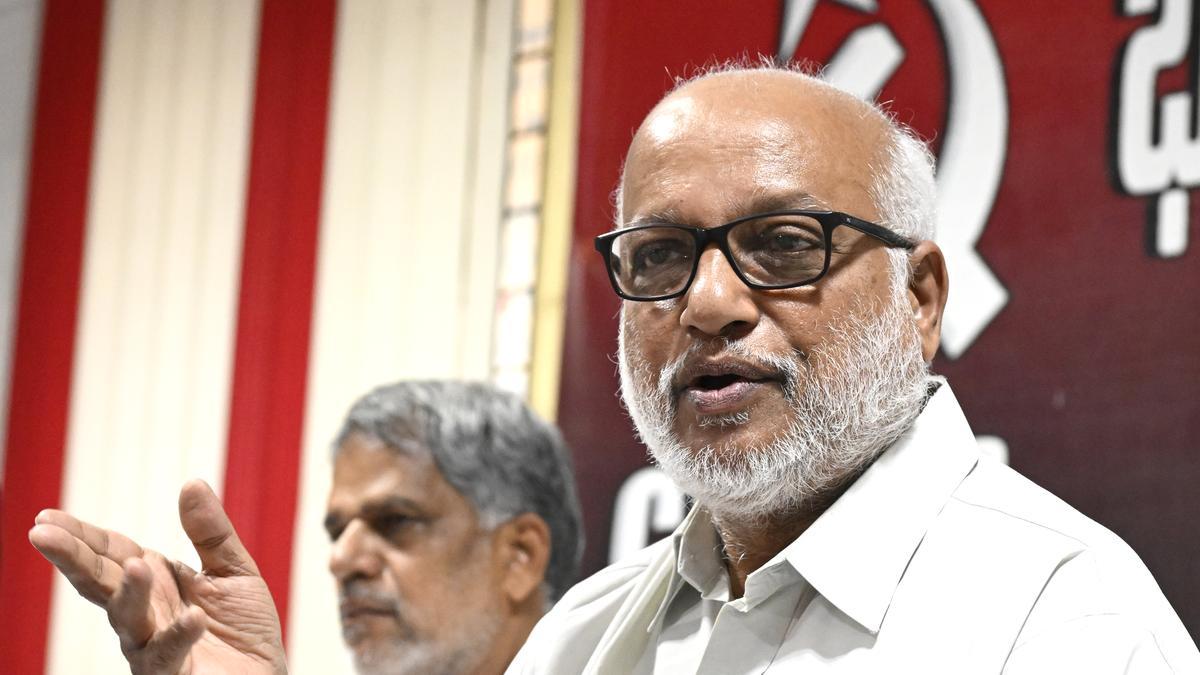The government on Monday (September 1, 2025) launched a network of advanced biomanufacturing hubs to scale up the country's bioeconomy and accelerate innovation across diverse sectors, officials said.
The High Performance Biomanufacturing Platforms, an initiative of the Department of Biotechnology (DBT) and the Biotechnology Industry Research Assistance Council (BIRAC), are being rolled out under the BioE3 Policy (Biotechnology for Environment, Economy and Employment), they said.

Speaking at the launch event, Union Minister of State for Science and Technology Jitendra Singh said the move marks a turning point for India's innovation journey as it makes it one of the earliest movers in advanced biomanufacturing.
"The High Performance Biomanufacturing Platforms are a network of advanced bio-foundries and biomanufacturing hubs designed to provide state-of-the-art infrastructure, technology, and expertise for scaling up bio-based innovations from the laboratory to pilot and pre-commercial stages," an official statement said.
The platforms integrate tools such as synthetic biology, artificial intelligence, machine learning, and omics technologies to accelerate the development of sustainable solutions in health, agriculture, food systems, clean energy, industrial biotechnology, and climate resilience, it said.
By offering shared facilities to start-ups, SMEs, industries, and academic researchers, the initiative aims to fast-track innovation and position India as a global leader in the bioeconomy.
Mr. Singh said the initiative reflected India's growing stature as a global biotech powerhouse.
"Unlike in IT and computers, where we were at least a decade late, this time we are among the first to have launched an institutionalised policy at the level of government," Mr. Singh said.
He underlined that India already has over 21 bio-foundries, compared to just around 100 worldwide, and more than 4,000 biotech start-ups.
"For a country like India, this is not a small feat. We have ensured that we are not leaving any area untouched— whether it is biopharma, bio-agri, bioservices or bio-industrial applications," he said.
Mr. Singh noted that India's bioeconomy has also gone up from just $10 billion and is now set to leapfrog to the $300 billion mark by 2030.
He said the biomanufacturing hubs and bio-enablers would also contribute to India's geopolitical empowerment, reducing dependence on petroleum imports and creating sustainable alternatives through biotechnology.
Calling biotechnology the "next big buzzword" after IT, Mr. Singh said, "By 2040, even before 2047, biotechnology will be what IT was in the 1990s. The youth of India will be the torchbearers of this transformation." According to officials, the Biofoundry Network under the BioE3 Policy will serve as a national platform to accelerate advanced biomanufacturing.
It brings together 21 bio-enabler facilities across the country, supporting start-ups, SMEs, industries, and academia in scaling up technologies in areas ranging from cell and gene therapy to marine biotechnology, precision biotherapeutics, smart proteins, and carbon capture.
Department of Biotechnology (DBT) Secretary Rajesh S. Gokhale hailed the occasion as a "landmark moment" for India's bioeconomy.
He emphasised that biomanufacturing would be among the greatest opportunities of the 21st century, with biology converging with engineering and digital technologies to drive sustainable growth.
The newly launched hubs, which are also called National Bio-Enablers or Mulankur (roots of new growth), will support innovation across health, agriculture, energy, environment, industrial biotechnology, and AI-driven bio-manufacturing, Gokhale explained.
"These hubs include cutting-edge projects such as a state-of-the-art cell therapy facility, the nation's first animal stem cell repository, a hub for mRNA-based precision medicine, and advanced CO2 sequestration systems," he said.
Looking ahead, he expressed confidence that India could surpass its $300 billion bioeconomy target by 2030, driven by youth-led innovation.
"Biomanufacturing is one of the most transformative technologies of the century. With this network, we are creating the roots that will nurture and anchor our bioeconomy for the future," Mr. Gokhale said.



.png)
.png)
.png)
















 2 hours ago
2
2 hours ago
2









 English (US) ·
English (US) ·